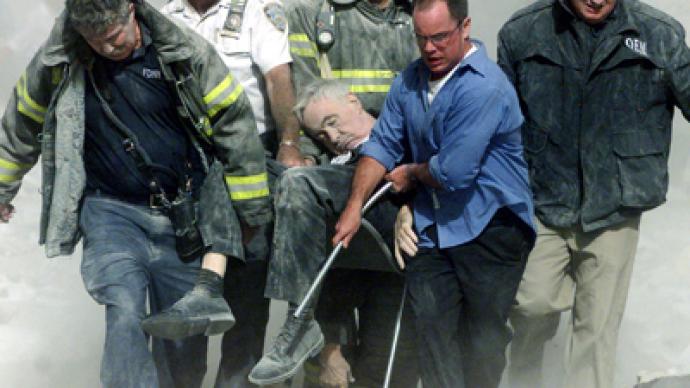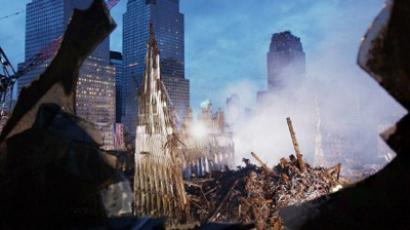Government finally admits that 9/11 toxins caused cancers

The US government has decided to recognize around 50 different types of cancer that victims of the 9/11 terrorist attacks have been diagnosed with after more than a decade-long wait that has left hundreds dead without proper care or diagnosis.
Civilians and first responders that survived the September 11, 2001 attacks but developed cases of varying cancers in the aftermath will now be covered by a government-administered health care program that will provide them with complimentary check-ups and screenings. The decision will apply to survivors of both crashes at the World Trade Center in New York City and the Pentagon in Washington, DC.The National Institute for Occupational Safety made the announcement Monday, adding dozens of diseases — including cancers of the breast, bladder and lung, colorectal cancer, leukemias, melanoma and childhood cancers — to an already substantial list of diseases that are covered. "The publication of this final rule marks an important step in the effort to provide needed treatment and care to 9/11 responders and survivors through the WTC Health Program," NIOSH director Dr. John Howard said in a statement this week. In a separate address, New York City Mayor Michael Bloomberg said, "We have urged from the very beginning that the decision whether or not to include cancer be based on science." For several years, however, many victims and physicians have made countless claims that the effects of the attacks in NYC and DC did in fact contribute to developing debilitating diseases.
Roughly 20,000 gallons of jet fuel, 100,000 tons of organic debris and 100,000 gallons of heating and diesel oil were ignited on 9/11 after two airlines being flown at speeds of hundreds of miles an hour collided into both towers at the World Trade Center, NBC News reports. The crashes there and the related ones that same morning at the Pentagon and in Shanksville, Pennsylvania left an estimated 3,000 people dead and pushed America into battle in Afghanistan and eventually Iraq, the former of which is still operated today at what has become the United States’ longest-lasting war.Twelve months ago, Dr David Prezant of the New York City Fire Department published findings culminated from his own research that revealed that firefighters that were exposed to the dust and smoke that came from the collapse of the Twin Towers have a 19 percent higher risk of getting various types of cancer than colleagues that were not assigned to Ground Zero.Cancer-causing toxins — including polycyclic aromatic hydrocarbons, polychlorinated biphenyls and dioxins — have all been found in tests conducted at Ground Zero. In his findings, Dr. Prezant explicitly writes. “This study clearly shows World Trade Center exposure in these firefighters led to an increase in cancer.”Retired NYPD Officer Edwin Rivera reflected on his assignment at Ground Zero with the New York Post earlier this year and said, “I have cancer that I should never have gotten” as a result of his work there.
“We sat in the pile and ate, drank water, rested – there was nowhere to go that wasn't contaminated,” Rivera said.Before this week, respiratory diseases, depression and post-traumatic stress disorder and some musculoskeletal conditions were recognized by NIOS, although a number of cancers that victims have been diagnose with were never recognized until now. Although around 50 new diseases will be added to the list, the government-determined payment cap for health coverage — $1.55 billion for treatment and $2.78 billion for compensation — will not be raised.The decision will impact around 70,000 civilians and first responders — including fire, police, and EMS personnel — that survived the attacks but developed diseases. NBC News reports that 9/11-related illnesses have killed around 1,000 victims so far.













